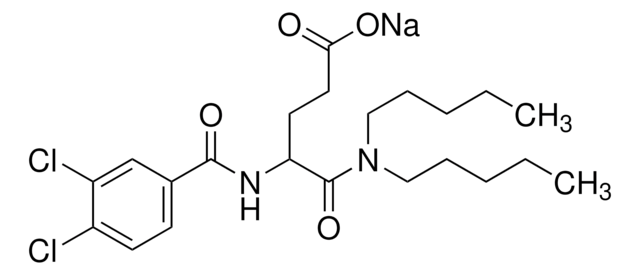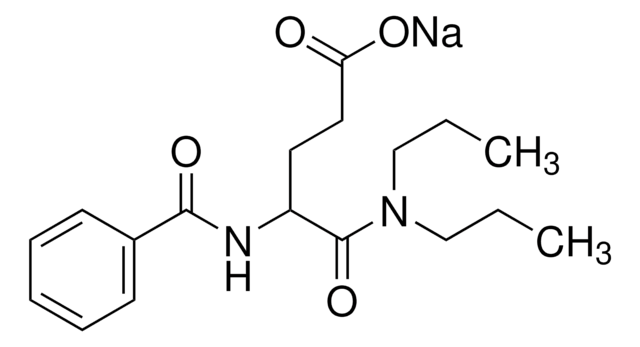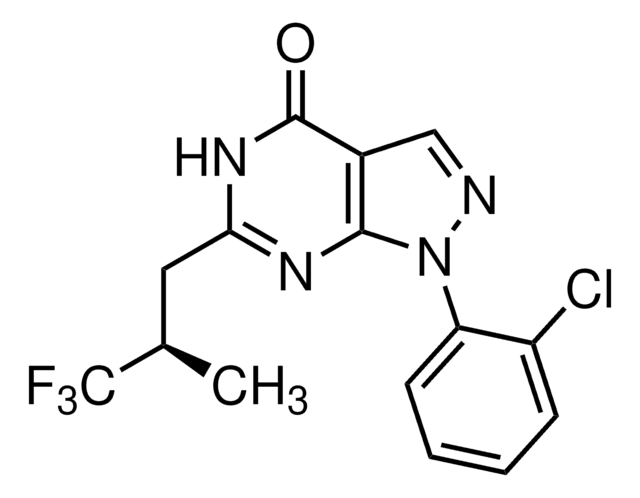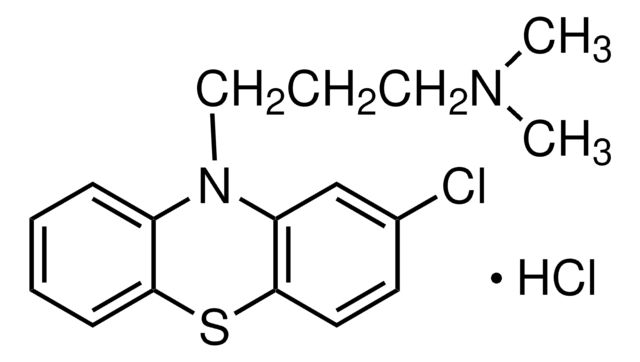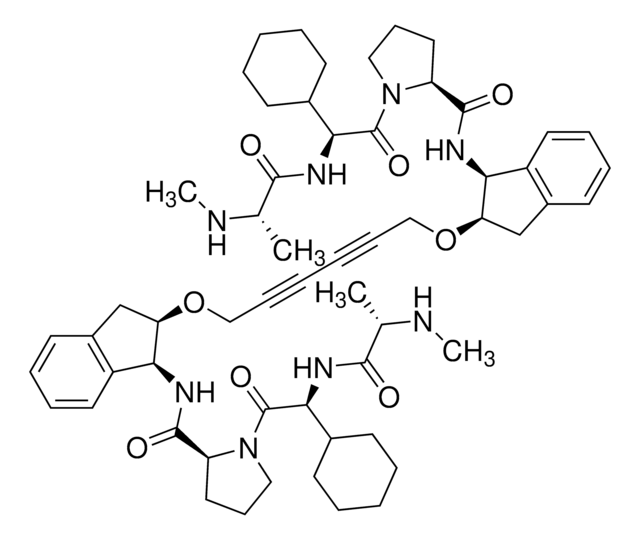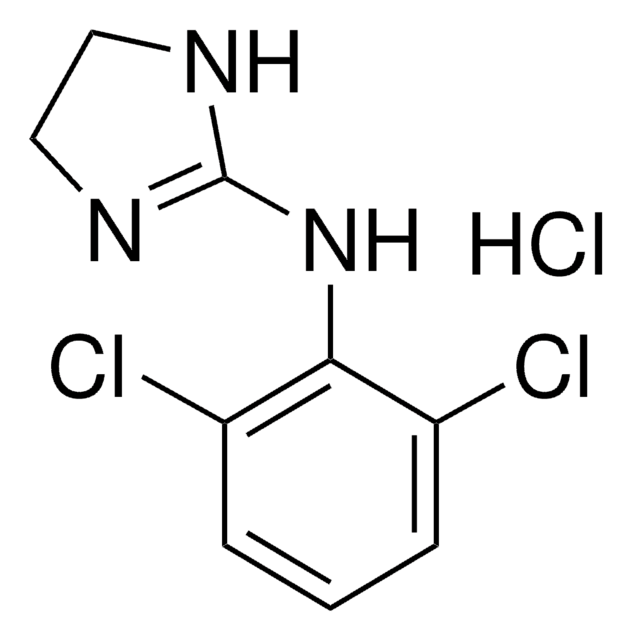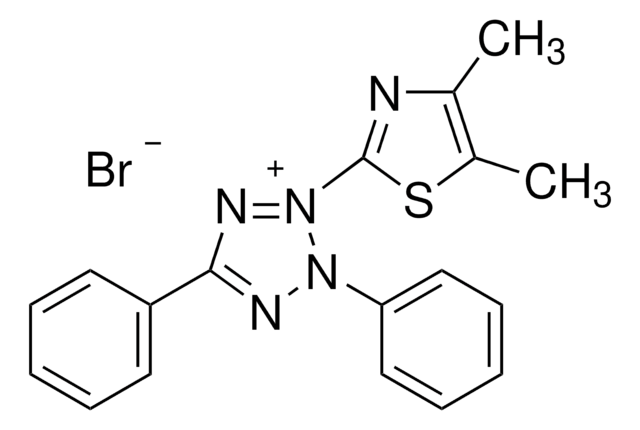D3821
Devazepide
≥98% (HPLC), powder
Synonym(s):
(S)-N-(2,3-Dihydro-1-methyl-2-oxo-5-phenyl-1H-1,4-benzodiazepin-3-yl)indole-2-carboxamide, L-364,718, MK 329
About This Item
Recommended Products
Quality Level
assay
≥98% (HPLC)
form
powder
storage condition
desiccated
color
white to off-white
solubility
DMSO: >5 mg/mL
originator
Merck & Co., Inc., Kenilworth, NJ, U.S.
storage temp.
2-8°C
SMILES string
CN1C(=O)[C@@H](NC(=O)c2cc3ccccc3[nH]2)N=C(c4ccccc4)c5ccccc15
InChI
1S/C25H20N4O2/c1-29-21-14-8-6-12-18(21)22(16-9-3-2-4-10-16)27-23(25(29)31)28-24(30)20-15-17-11-5-7-13-19(17)26-20/h2-15,23,26H,1H3,(H,28,30)/t23-/m1/s1
InChI key
NFHRQQKPEBFUJK-HSZRJFAPSA-N
General description
Application
Biochem/physiol Actions
Features and Benefits
signalword
Danger
hcodes
Hazard Classifications
Acute Tox. 1 Oral
Storage Class
6.1A - Combustible acute toxic Cat. 1 and 2 / very toxic hazardous materials
wgk_germany
WGK 3
flash_point_f
Not applicable
flash_point_c
Not applicable
Choose from one of the most recent versions:
Certificates of Analysis (COA)
Don't see the Right Version?
If you require a particular version, you can look up a specific certificate by the Lot or Batch number.
Already Own This Product?
Find documentation for the products that you have recently purchased in the Document Library.
Customers Also Viewed
Our team of scientists has experience in all areas of research including Life Science, Material Science, Chemical Synthesis, Chromatography, Analytical and many others.
Contact Technical Service